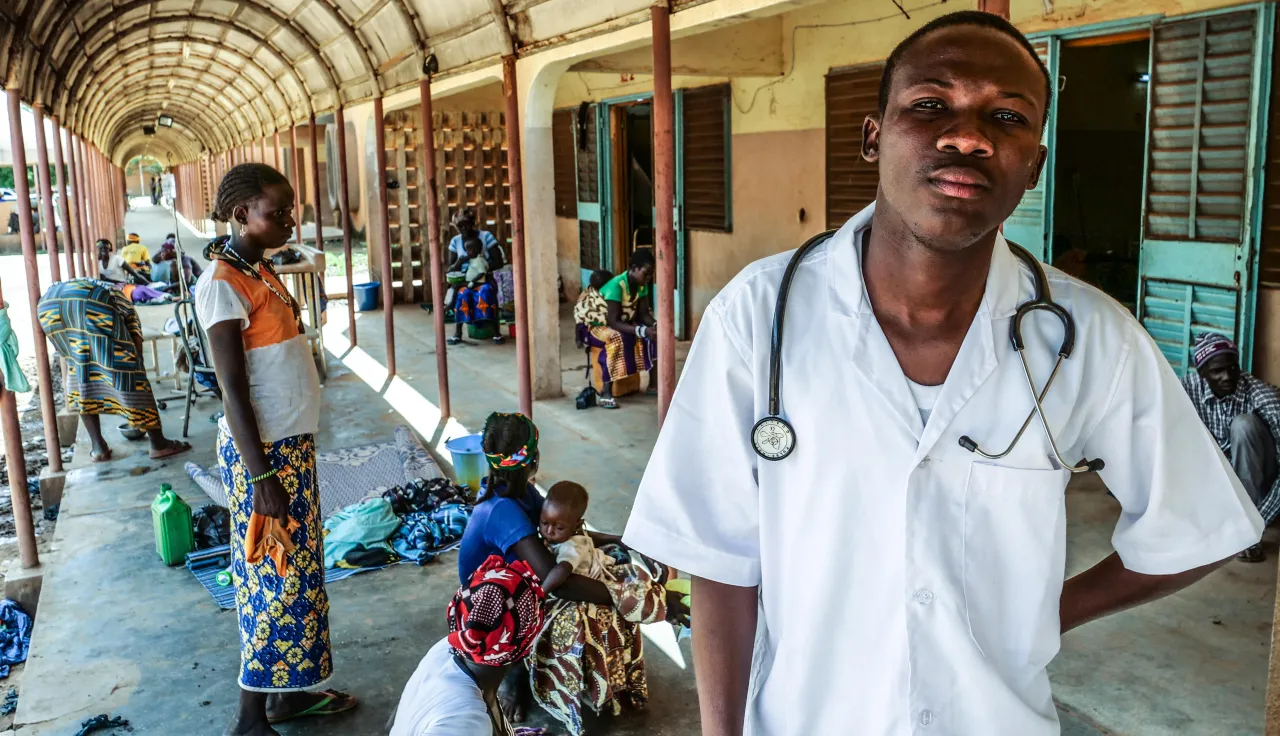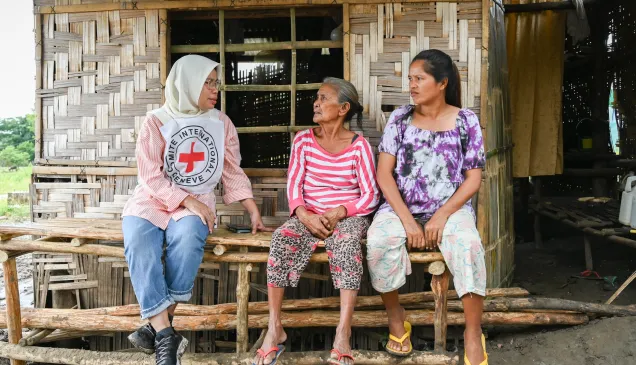Partnership is key to ending violence against health care

Violence against health care is a persistent feature that continues to characterize conflicts and other emergencies today. Health-care personnel, patients, facilities, and vehicles are frequently attacked during armed conflict despite being protected under international humanitarian law (IHL).
When life-saving care is unavailable, the lives of patients, whether civilians or combatants, are at risk. The absence of relatively routine care like dialysis treatment can be a death sentence for those who may not be able to cross a checkpoint. Health personnel may be unable to provide life-saving care to patients when they face violence. Just one act of violence can have grave long-term consequences and cascading effects. Confronted with unbearable conditions, nurses and doctors may decide to leave the profession or even the country.
The International Red Cross and Red Crescent Movement started the Health Care in Danger (HCiD) Initiative to devote concerted attention to address violence against health care. In the past 10 years, Red Cross and Red Crescent National Societies have been actively tackling this complex issue alone and in partnership with the ICRC.
Partners in action
In the Philippines, Philippines Red Cross (PRC) volunteer Hanifah Domato mentions that at the beginning of the Marawi conflict in 2017, volunteers faced discrimination from the community due to the use of the Red Cross. There was an incorrect perception that the Red Cross is a religious symbol. "We had to explain the history of the Philippine Red Cross and our principles, especially impartiality and neutrality. We are never tired of explaining our role, and today I can say that almost all the communities have accepted us as a neutral humanitarian actor in the field."
The Nigerian Red Cross Society has been raising awareness among taxi drivers to remind them of the importance of giving way to ambulances. They are also working with religious leaders to foster a climate of respect for health care.

Mogadishu, Somalia. The emergency room entrance of the ICRC-supported Keysaney hospital. Paintings on the wall depict an array of weapons that are prohibited from entering the hospital (all weapons are prohibited). © ICRC / B. Schaeffer
In Colombia, patients in remote communities were dying due to a lack of oxygen as the COVID-19 pandemic surged. The Colombian Red Cross negotiated access and delivered medical supplies to isolated communities saving the lives of an estimated 9,000 people.
Colleagues in Iraq have observed a vicious cycle where fewer trained professionals report to work, leading to a decline in the quality and amount of care provided and the availability of specialized care for those most in need. Patients and families experience a poor quality of care and as a result, doctors and nurses tend to bear the brunt of frustrations, at times in the form of physical violence. 87% of 505 doctors surveyed in 2021 in Baghdad reported violence in their facility in the previous six months, mainly from the family members of the wounded and sick.[1]
In the face of these challenging dynamics, the Iraqi Red Crescent Society (IRCS), the Norwegian Red Cross and the ICRC have collaborated to reinforce respect for health care as part of the Health Care in Danger Initiative. IRCS and the ICRC provided support to a government-led, high-profile public communication campaign in 2018 and regularly take up this issue. IRCS, with the support of the Norwegian Red Cross and the ICRC have been working to improve the communication skills of health care professionals to prevent violence from occurring.
Given the complexity of violence against health care, collaboration with like-minded actors is crucial for success.
About: Health Care in Danger (HCiD) is an initiative launched by the International Red Cross and Red Crescent (RCRC) Movement aimed at addressing the issue of violence against patients, health workers, facilities, and vehicles, and ensuring safe access to and delivery of health care in armed conflict and other emergencies. In 2011, the concept of protection of health care was institutionalised through the adoption of Resolution 5 at the 31st International Conference (IC) of the Red Cross and Red Crescent.
Violence against health-care workers, hospitals and ambulances weakens health-care services, depriving people of life-saving treatment. Violence against health care must end. The ICRC has collaborated with National Societies around the world to protect health care in armed conflict and emergencies.
To mark the 10th anniversary of the Health Care in Danger (HCiD) initiative as we go into our 11th year, the ICRC is releasing a compilation of short testimonies illustrating the work of Red Cross and Red Crescent Movement partners to prevent violence against healthcare providers and the wounded and sick in the last 10 years
ICRC's compilation of testimonies on
Health Care in Danger
Further resources
1 Violence against doctors in Iraq during the time of COVID-19 - PMC (nih.gov)



